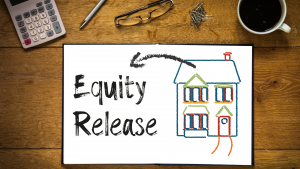For cryptocurrency enthusiasts, the big news is that the value of the most popular cryptocurrency, bitcoin (BTC), reached a new peak in November 2017. The value peaked at around 19,000 USD for bitcoin; as of June 2018, the coin is worth over 8,000 USD. In recent years, bitcoin has piqued the interest of hackers since holding the currency means having something of value that could be seized. But there is a way to effectively keep your cryptocurrency safe without spending a fortune on an elaborate security system, and all you need is some savvy computer know-how.
Store your cryptocurrency in a “cold” wallet
Storing cryptocurrencies in a digital wallet can be convenient for people to hold digital currency. Your digital wallet can store your cryptocurrency in an encrypted location only you have access to. Another alternative to storing your cryptocurrency in a digital wallet is keeping it “offline,” meaning not connected to the internet. This means if everything goes as planned with hackers, your money is still safe, and your cryptocurrency wallet will be intact.
Use a reputable exchange to buy/sell
When it comes time to buy or sell cryptocurrency, you’ve probably heard the market can be confusing, consisting mainly of crypto exchanges and multiple blockchain currencies. Choosing a trusted exchange is critical to making good cryptocurrency trading decisions. Therefore, we’ve put together some tips to help you find the right exchange for you. We’ll go over how to transfer funds securely, avoid scams, and avoid falling victim to a common exchange mistake.
Change your password regularly and use a password manager.
When it comes to passwords, “extra” is almost always better. Change your passwords regularly and do things like use one password for each service. And be sure to use a password manager like LastPass, Dash Lane, or 1Password. All three services use a master password that encrypts all of your other passwords so long as you keep that one password safe. Not only does this make remembering more than a few passwords easier, but it also makes it harder for hackers and thieves to access your personal information. Changing your password regularly is also an important security step you can take.
Beware of phishing
Customers who attempt to log in to official accounts on financial institutions’ websites are more likely to fall victim to phishing attacks than those who do not attempt the login. Phishing attacks account for 93.5% of successful attacks against wearable devices, 79.1% of credit card theft attempts, and 51% of phishing attempts. These attacks are often found in emails that masquerade as users expect to receive, such as statements or other official mail. These scams trick users into entering login credentials or personal information.
Separate cryptocurrency and personal/work.
Personal and work accounts are separate and created separately. Most people have established their personal accounts, while work accounts are only established within the workplace. Even one’s cryptocurrency accounts are not directly linked to personal accounts. All the accounts are separate from one another.
Avoid public Wi-Fi
Public Wi-Fi has become so convenient in our digital world. You can now get online wherever else you go, whether at the library, coffee shops, airports, hotels, or restaurants. But the problem is that many people aren’t using it securely. Even though many devices now come with VPNs and antivirus software, many people still regularly use public Wi-Fi without protection.
Install updates automatically
Updating software is essential to keeping your computer running smoothly. New updates can make issues easier to fix; sometimes, they can even be downright necessary. These systems can go down at any time, so you must ensure you have the latest patches and updates so you don’t lose your data or programs.
Don’t disclose any information on your wallet.
Password managers store your personal information and, in many cases, generate and store stronger passwords for you. They also store other credentials such as security codes, user IDs, and passwords—that allow you to sign into various sites and services. Best of all, since password managers store the data on your computer, they aren’t linked to your physical devices, so if your phone or tablet is lost or your information is stolen, the thieves can’t access it.
Stay up to date with the latest threats.
News feeds keep people well informed on current events around the world and provide reports on the various threats that threaten the security of our country and our freedoms.
Make sure your password is complex and changed as frequently as possible. Also, if you want to store your crypto offline, back up your password and wallet file to an external device.



